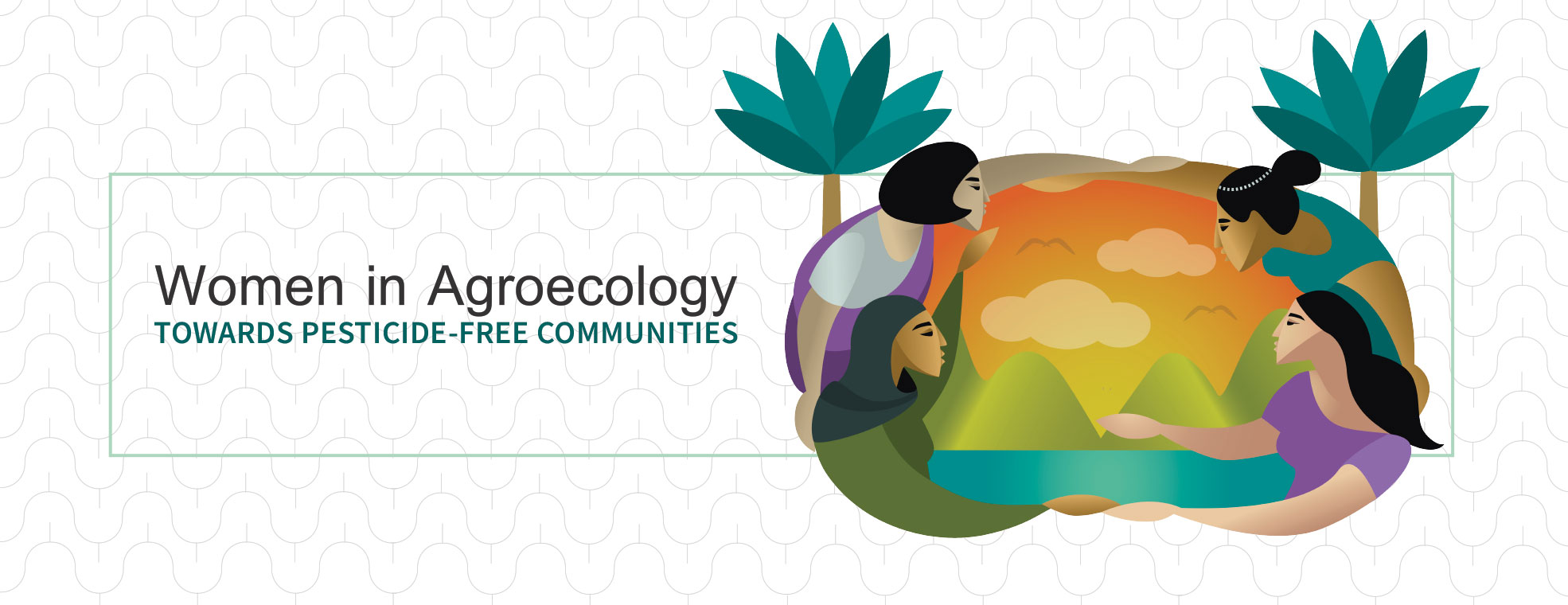Intensive use of toxic pesticides has had profound impacts on rural women who represent half of the farming population and play a crucial role in food security and environmental protection. Being at the forefront of production, as well as family and community affairs, women bear the brunt of the problems or crises brought about by chemical-intensive corporate-controlled agriculture. Spiraling costs of chemical inputs, adverse health impacts, environmental pollution, loss of biodiversity and people’s control over land, seeds and other natural resources have pushed rural women deeper into poverty, marginalisation, hunger and malnutrition. Reproductive health impacts of pesticides also affect the next generation in still incalculable ways.
In many communities in the Asia Pacific where PANAP and its partners are active, rural women suffer from acute and chronic pesticide poisoning, with little documentation and recognition, much less access to social protection and means of redress. They are witnesses to the impacts of chemical-intensive agriculture not just on human health, but on ecosystems, culture, livelihoods, and gender dynamics at the community level.
At the same time, rural women are taking the lead to shift away from chemical dependency towards agroecology—a farmer-centred holistic approach to farming that upholds the principles of food sovereignty and works with nature, not against it. Agroecology is an integral part of comprehensive solutions to transform corporate food systems. It can be transformational for rural women in particular, as the move to regain control over land, seeds and other resources leads to greater roles in leadership, decision-making and farm management.
On the occasion of International Women’s Day 2023, PANAP launches stories of rural women across the Asia Pacific region who are survivors of pesticide poisoning and/or making the transition to agroecology. These stories provide evidence of the successes of agroecology in upholding the rights and welfare of rural women, as well as in contributing to the resiliency of communities amid food price shocks and climate change. A continuing storytelling initiative, Women In Agroecology: Towards Pesticide-Free Communities hopes to inspire women and communities, as well as advocates and policymakers at the local, national, regional, and international levels working at the intersections of gender justice and sustainable food systems.
A pesticide-free world is possible—one woman, one community, one story at a time.








Discussion about this post